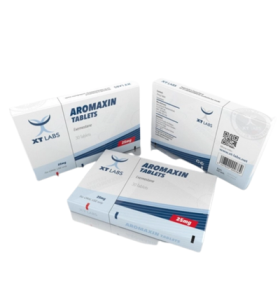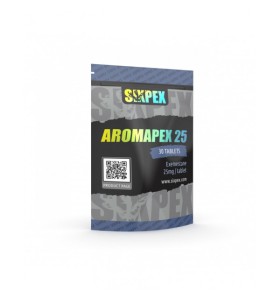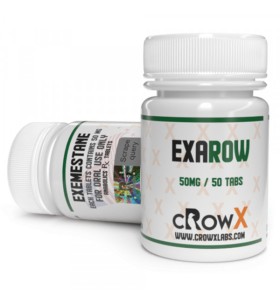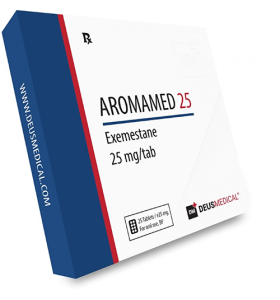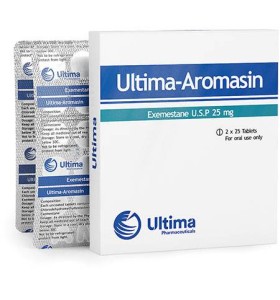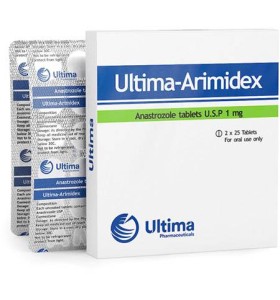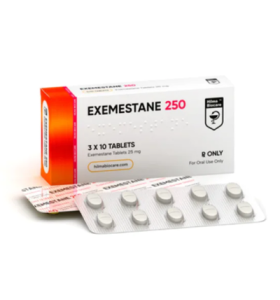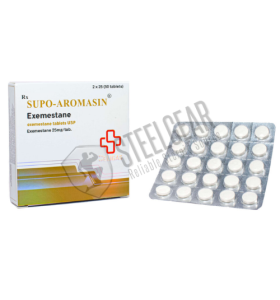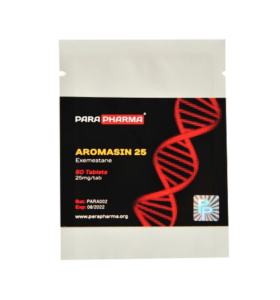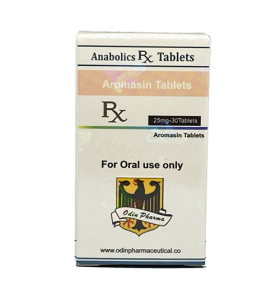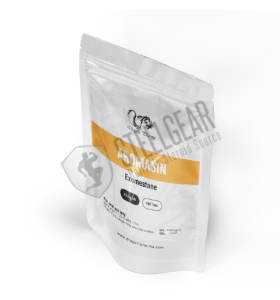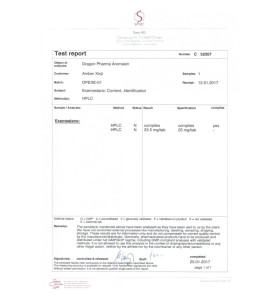Exemestane (Aromasin) for Bodybuilders - Powerful Estrogen Control
Aromasin is mostly administered in breast cancer more especially in post menopausal women. Some types of breast cancer are said to be hormone-reduced particularly estrogen-reduced and that why exemestane as it helps in minimizing the estrogen levels in the body. Since Exemestane is classified under aromatase inhibitors that have characteristic features of minimizing the synthesis of estrogen from androgens and reduction of estrogen levels in an effort to slow down or halt the growth of hormone receptor positive breast cancer cells.
Exemestane also belongs to the medications that are deemed acceptable by the FDA to treat breast cancer hence recommended for patients continuing with other therapies like using tamoxifen or when the treatment has not been stopped after surgery. In this article, the author shall explain how this drug has been helpful, its function in handling breast cancer and for the patients that have been given this surgery.
Benefits of Exemestane (Aromasin)
Reduction in Cancer Recurrence
Exemestane is known to help in the reduction of the possibility of instances of breast cancer reemergence. Exemestane mainly works to reduce the levels of estrogen in the body and this makes the cancer cells to stop regrowing especially after special treatment such as surgery, chemotherapy, or radiotherapy among others.
Fewer Side Effects Compared to Tamoxifen
Both Exemestane and tamoxifen are employed for treatment of hormonal breast cancer but Exemestane bears lesser pronounced severe side effects particularly to those dangerous blood clots and uterine cancer. As a result this has been found to be favorable for use in long term management of this disease in many women.
Improvement in Survival Rates
Studies have proved that Exemestane extends the average survival of women suffering from hormone receptor-positive breast cancer and especially when transitioning from tamoxifen to Exemestane. This extended survival is important especially for the women who have early stage breast cancer, since it means that they will benefit from the additional time without recurrence.
Favorable for Long-Term Use
Being mainly used to treat postmenopausal women with breast cancer, exemestane is usually given in large doses for as long as five to ten years after initial cancer therapies. It can therefore keep estrogen levels low for the long-term that is needed in therapy since the cancer may recur later after treatment.
Effectiveness in Advanced Breast Cancer
Exemestane benefits women with advanced and metastatic stages of breast cancer; it helps the cancer to progress slowly therefore enhancing the quality of the life of patients through controlling of symptoms and reduction of tumor size. While it cannot cure terminal diseases like cancer it helps in prolonging the life of such patient and at least reduce on the pains they feel.
The Part Played by Exemestane in the Management of Breast Cancer
Exemestane is mainly used for the remedy of postmenopausal hormone receptor positive breast cancer that comprises 60-70% of all types of breast cancer. In these cancers estrogen actually promotes the growth and distro of the tumor. Through suppression of aromatase, the enzyme that synthesizes estrogens in the tissues of postmenopausal women who have few sources of their hormonal input, Exemestane starves the tumors that are dependent on estrogen stimulation.
For Postmenopausal Women
The vulnerability increases after menopause because the postmenopausal breast cancer has hormone receptor positive that can be stimulated by estrogen produced through aromatization of androgens (male hormones) in fat tissue. Exemestane helps in the prevention of this occurrence by inhibiting the conversion so that estrogen levels are kept low. This is important in the prevention or slowing down of growth of estrogen dependent cancerous tissues.
Exemestane for Post-Surgery Patients
They may undergo further treatments such as Chemotherapy, radiation therapy or Hormonal therapy after the breast cancer surgery which includes mastectomy or Lumpectomy. It is therefore the case that Exemestane is useful at this post surgical phase and more so for those women who have early stage hormone receptor positive breast cancer.
Adjuvant Therapy
Soldier, exemestane is given after surgery to cut down the risk of the same cancer recurring or reoccurrence in the body. Some randomized clinical trials have suggested that, compared to continuation on tamoxifen, Exemestane produced a fairly marked reduction in CVD’s in postmenopausal women with hormone receptor-positive breast cancer. This is because the therapy with exemestane is long term, which is advisable for post surgery patiemts who require hormonal therapy for late recurrences that may occur many years after the surgery.
Switching from Tamoxifen
Some postmenopausal women will be first-line endocrine therapy with tamoxifen for five years after surgery. But when switching to Exemestane after this period it was found that it is even more effective in preventing recurrence and increasing the survival chances. This switching strategy is highly encouraged by the oncologist since it provides an extra line of defense to the patients who have earlier been administered with tamoxifen.
FAQS
How long does a patient on Exemestane usually take?
Classic dosing of Exemestane is administration of the drug for 5-10 years as a component of aromatase inhibitor maintenance therapy after surgery or as the first-line treatment.
What are the dangers involved in taking Exemestane it does it lead to loss of bone density?
Yes, Exemestane causes side effects of osteoporosis also known as loss of bone density. Your doctor will then recommend that you take calcium and vitamin D or other supplements for the development of bones.
Can you list the most frequent adverse effects of the usage of Exemestane?
Surely hot flashes, joint pain, fatigue, and sweating are the most typical side effects of the given treatment. Many of the side effects highlighted here can be controlled through proper medical advice.
Conclusion
Exemestane as the ingredient of Aromasin is effective in treating the cancer that is hormone receptor positive, especially in post menopausal women. Due to its capability to cause decrease in estrogen levels, decrease the frequency of recurrence, increase rates of survival this medication is crucial in both initial phases of breast cancer as well as in the case of metastasis. In other words, since Exemestane is administered to patients after surgery, the drug offers them a long-term shield against the likelihood of cancer reappearing in the body thus enabling the patients to lead healthy lives. But, there are side effects associated with it and majority of those side effects can be well containing, thus, making Exemestane a worthy candidate for long term treatment of breast cancer.























